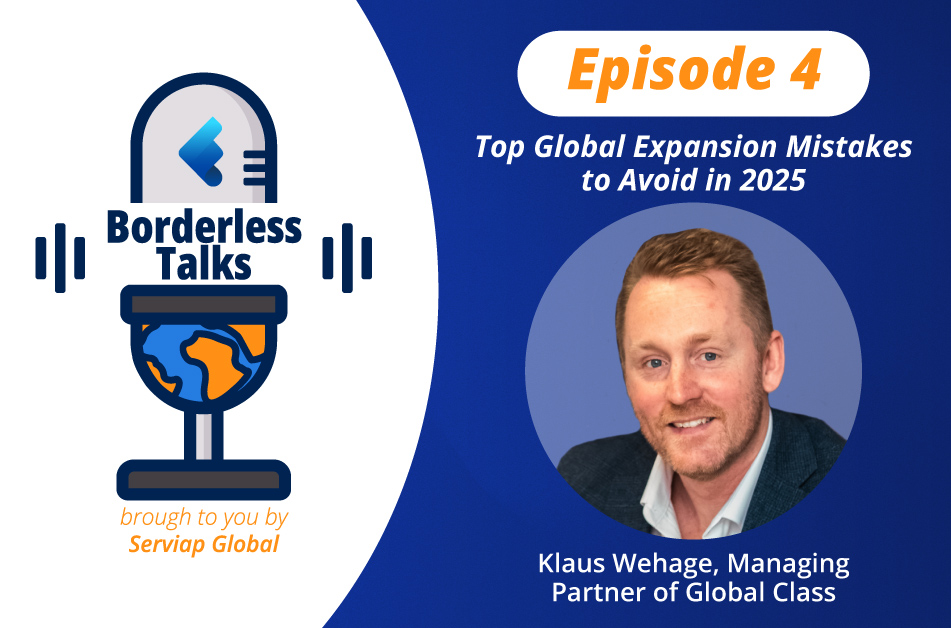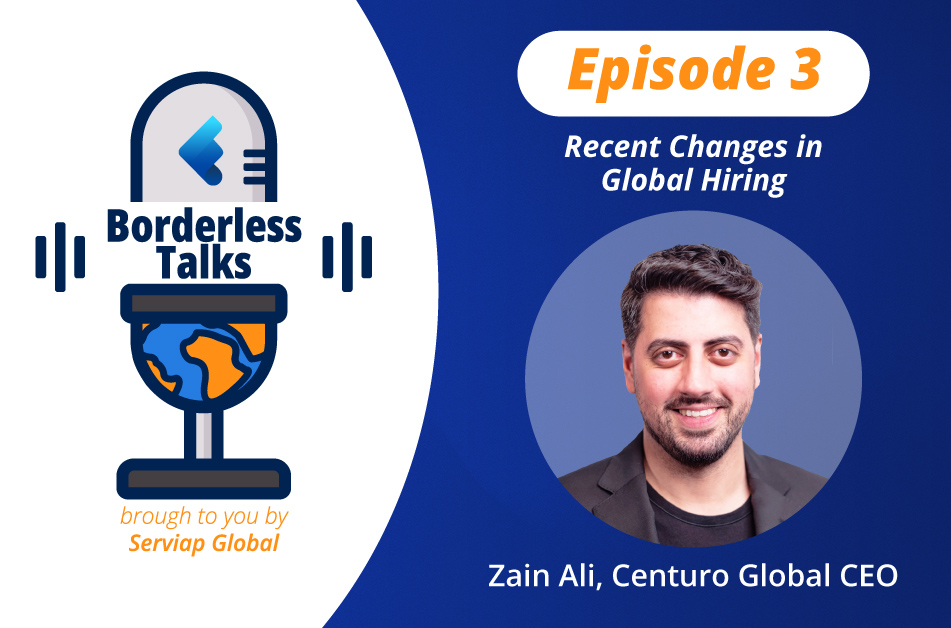Table of Contents
Dominican Republic is located on the island of Hispaniola. It shares the island with Haiti, making it one of only two islands in the Caribbean that are shared by two sovereign states (the other is Saint Martin). It is the second-largest country in the Antilles by area alone (Cuba is first). Tourism is the largest industry in the country. Residents speak English well, and they are advancing in technology-based skills.
If you’re considering doing business in the Dominican Republic, contact us today.
The economy in the Dominican Republic
Doing business in the Dominican Republic makes sense as it has the largest economy in the Central American and Caribbean regions. It’s been the fastest-growing economy in the Americas over the last 25 years, with an average GDP growth rate of 5.53%. From 2014 to 2015, its GDP growth was the highest in the entire Western Hemisphere.
The economy here has become diversified in the last 30 years, expanding from a reliance on exports to include trade, mining, agriculture, manufacturing and services. Services actually account for nearly 60% of the country’s total GDP. This is thanks to advanced and robust transportation infrastructure and telecommunication system.
The importance of small and medium-sized companies
Small and medium-sized companies (SMEs) play a vital role in the economy of Dominican Republic. In all, there are almost 20,000 SMEs in the country employing employ more than 500,000 workers, or 13% of the workforce. Combined with micro enterprises, they employ 54.4% of the country’s workforce, accounting for 27% of its total GDP.
Population characteristics
There are roughly 10.8 million people who live in Dominican Republic, ranking it 13th in population size in Latin America and third in the Caribbean, behind only Haiti and Cuba. A little more than 30% of the country’s population lives in the metro area of Santo Domingo, which is the capital city.
The country has a relatively young population, with 31.2% being under the age of 15 and only 6% over the age of 65 as of 2010. While Spanish is the main language in the country, English is spoken at an increasing rate.
Key sectors of the national economy
The Dominican Republic has the eighth largest economy in the Central American and Caribbean region. It’s a diverse economy that’s expected to grow almost 80% by 2030. Services represent 60.8% of the country’s GDP, employing 63.1% of the labor force. Industry (33.8%) and agriculture (5.5%) are major industries as well.
Human talent for business in the Dominican Republic
- The overall workforce available to business in the Dominican Republic has grown almost 4% since 2000—almost four times more than the average for the OECD nations.
- Focus on education in advanced degrees such as tech are part of the reason for this.
The silicon valley of the Caribbean
Santo Domingo, the capital and largest city in Dominican Republic, is becoming known as the Silicon Valley of the Caribbean, and for good reason. Investment in building the city as a tech hub started almost 20 years ago and is exploding now. Most people starting a business in the Dominican Republic will be here at first.
At the center of this explosion is the Santo Domingo Cyber Park. It hosts more than 20 companies in the tech sector, many of which are start-up companies. This is leading to new ideas and innovation that the country hasn’t seen in its past.
In total, the companies located within the cyber park employ more than 2,000 people. The center also hosts smart homes and research labs. Right across the street is the Technological Institute of the Americas, a hub for innovation for companies that focus on biotech, blockchain, drones, 3D printing and virtual reality.
The growth of the tech sector for business in the Dominican Republic can be attributed to the dedicated partnership between the government and the private sector.
Technological ecosystem
Overall, the start-up ecosystem is growing for business in the Dominican Republic. It ranks 78th out of 105 countries that are ranked globally. That said, it’s starting to grow thanks to angel investors and serial entrepreneurs.
New investment in the start-up ecosystem has resulted in the launch of co-working spaces and incubators such as Labocaproject (located in Cabarete) and Coworking.do (in Santo Domingo). Digital Republic is a program launched by the government recently to create a stronger digital ecosystem in Dominican Republic as well.
Facilities for Foreign Investment
Starting a business in the Dominican Republic is simple as the government tries to make it easy for people to start a business in the country. The average amount of time it takes to open a business in the country (14.5 days) is nearly half the average for all of Latin America (30 days). Still, the country is ranked 109th out of 190 countries for the ease of doing business.
What you need to know about employing personnel for your business in the Dominican Republic
Laws that regulate labor relationships for business in the Dominican republic.
| Laws | Brief description |
| Constitution of Dominican Republican | The supreme law that governs economic, social and political life in Dominican Republic. It was last revised in 2015. |
| Labor Code (Law No. 16-92) | Administered by the Ministry of Labor, this code verifies compliance to the provisions. Labor courts have jurisdiction over disputes and/or conflicts. Very protectionist to workers. |
| Tax Code (Law No. 11-92) Codigo Tributario and its Reglamentos | Tax law is territorial in the country. It taxes all income from business activities or work in the country, whether the person is a resident of the country or not. Corporations pay a flat income tax of 25% on their net taxable income. |
| Social Security | Social Security is a pay-as-you go system for insurance that covers workers in the private sector. It is, however, being phased out in the country and has been closed to new entrants. |
Key tax and labor authorities for business in the Dominican Republic
| DGII (Dominican Internal Revenue Agency) | The institution responsible for administering and collecting internal fees and taxes within the Dominican Republican. It was formed by a 1997 law that merged the General Directorates of Internal Revenue and Income Tax. |
| SDSS (Dominican System of Social Security) | Regulates and develops duties and rights of citizens and the state that concern money to protect residents against risks of disability, old age, unemployment and occupational hazards. |
Labor Contracts
| Contracts | Labor law doesn’t require a written employment agreement for permanent employment. Employers only must list employees in their workbooks with the local tax authorities, report all wages paid, and pay Social Security. If written contracts are signed, all changes must be done via changes in writing. It also must be in Spanish. | |
| Fixed-term | Employment contracts are indefinite unless the nature of services requires only a fixed term or specific services. A written employment is required for fixed-term work. | |
| Trial Period | There’s no trial period for business in the Dominican Republic. However, during a person’s initial three months of employment, the contract is allowed to be terminated without any additional obligations to the employer. |
Basic requirements for contracts for business in the Dominican Republic
Established by Law No. 16-92, the Labor Code dictates contracts must contain:
- Name
- Nationality
- Age
- Sex
- Marital status
- Address of the worker
- Address of the employer
Payroll for business in the Dominican Republic
Payroll laws dictate what employers can and can’t do in relation to paying their employees of their business in the Dominican Republic. It also provides employees with various protections in terms of wages and rights.
Legal benefits for business in the Dominican Republic
These benefits are laid out to dictate the relationship between the employee and employer. These benefits are independent of the salary and may be of a medical, cultural, or economic nature.
Some of these benefits are mandatory by law of the land, while others are optional at the discretion of the employer.
| Minimum Wage National Salary Committee of the Ministry of Labor | Minimum wage is established so that all employees can cover all fundamental expenses to live a decent life. |
| Wages Articles 192, 193, 192 and 211 | Wages can’t be below the minimum wage established in the country. They must be paid out in cash. Intervals between payments of salary can’t exceed one month. |
| Overtime Article 203 and 204 | Overtime has to be paid for every hour worked above the weekly limit of 44 hours. It’s paid at 135% of an employee’s normal hourly wage. Hours in excess of 68 per week are paid at 200% normal hourly wage Night hours are paid at 15% additional rate. |
| Christmas Salary Articles 220 and 222 | Every employee in the country receives a “Christmas salary” equal to 1/12 of their total salary earned during the year. The maximum paid out is five times minimum wage, but many employers waive the limitation on maximum. It is exempt from income tax. |
| Profit Sharing Article 223 | Employers have to share 10% of net profits with the employees. This can be capped at various levels, depending on how long the employee has worked at the company. |
| Vacations Articles 177, 181 and 182 | Employees must get at least 14 working days of paid vacation every year. Employees gain this benefit after being on the job for one year. After five years at a company, that must increase to 18 working days a year. Vacations can’t be split up into periods of less than a week, and can’t be replaced by other form of compensation. |
| Leaves of Absence Article 54 | Employees have the right of paid absences for the following things: Marriage: 5 days; Death of parent, grandparent, spouse or offspring: 3 days; Wife or companion giving birth: 2 days; Maternity leave: six weeks before and after birth of child |
Employers contribution or labor cost
Employers with a business in the Dominican Republic are subject to taxes and other costs of employment.
| Income tax article 307 | Employers have to withhold income taxes from the salaries of their employees, to be paid to taxing authorities. Only salaries higher than 20,000 Dominican pesos/month must be withheld. |
| Social security law No. 87-01 | This is insurance for labor and health risks, as well as a retirement/incapacity fund that’s funded by both the employee and employer. Health Insurance: 3% employer contribution Labor Risk Insurance: 1.25% employer contribution Incapacity/Retirement Fund: 2.88% employer contribution |
Types of Disabilities
When doing business in the Dominican Republic, be aware of various laws that protect people with temporary and permanent disabilities. It protects workers who are disabled from being treated unfairly by employers. It also provides disabled people with the right to obtain a permanent or fixed occupation that’s similar to that of all other workers.
The country’s Labor code says disabled people can qualify for work based on their specific ability to perform the duties of the specific job, regardless of what their disability is. Disabled people aren’t, however, given special privileges because of their condition.
Employers must provide reasonable access for disabled people. Discrimination based on a number of factors, including disability and religion is prohibited.
Maternity leave
Under the Labor code for doing business in the Dominican Republic (Articles 231, 232, 236, 240 and 243), employers must provide special protection to any employee who is pregnant or who has given birth recently.
Employers cannot terminate such employees during their pregnancy and for up to three months after they give birth. If they do so without giving a just cause, they must pay the employee five months’ salary in addition to the country’s standard severance.
Paid maternity leave is given for six weeks preceding the projected birth date, plus six weeks following that date. Employees also have the right to a rest period of 20 minutes for each workday so they may breast feed their child.
Public holidays
The Labor Code provides for public holidays that are observed when doing business in the Dominican Republic:
| Date | Holiday name |
| January 1 | New Year’s Day |
| January 6 | Three Kings’ Day |
| January 21 | Day of the Virgin of Altagracia |
| January 26 | Birth of Juan Pablo Duarte |
| February 27 | Independence Day |
| Variable in March or April | Good Friday |
| Variable in May or June | Corpus Christi |
| May 1 | Labor Day |
| August 16 | Restoration Day |
| September 24 | Day of the Virgin of Mercedes |
| November 6 | Constitution Day |
| December 25 | Christmas |
Termination
The Labor code outlines rules for termination of an employment contract when doing business in the Dominican Republic:
| Type of Termination | Brief description |
| At will: Articles 75, 76, 79 and 80 | Any party to the contract can terminate it without needing to specify a cause. Terminating party has to give 7, 14 or 28 days of notice of the decision (depending on whether the agreement has been in place for 3, 6 or 12 months). |
| For cause: Articles 87, 88, 90, 91, 93 and 94 | Employers can terminate employees who engage in specific causes. Employers must provide evidence of the grounds for the termination. Employers must provide written notice of this to the Department of Labor within 48 hours of dismissing the employee. Employees can resign for cause, but must provide evidence for the grounds. |
Employees are due a severance pay from the employer if it is found that they are in the right for quitting. The amount they get varies according to the time they have served with the company. All severance pay has to be paid out by the employer to the employee within 10 days of the contract termination.
Serviap Global can help you do business in the Dominican Republic
At Serviap Global, our services include international PEO / EOR services for business in the Dominican Republic, independent contractor hiring, and global talent acquisition for companies seeking top talent to hire directly.
We assist clients with global hiring in more than 100 countries worldwide, having started out in Latin America in 2010. Over more than a decade of operations, we have earned a reputation as experts in helping companies recruit talent in emerging markets.
If you are looking for help with your business in the Dominican Republic or elsewhere, contact us to find out more about how we can help you.






























